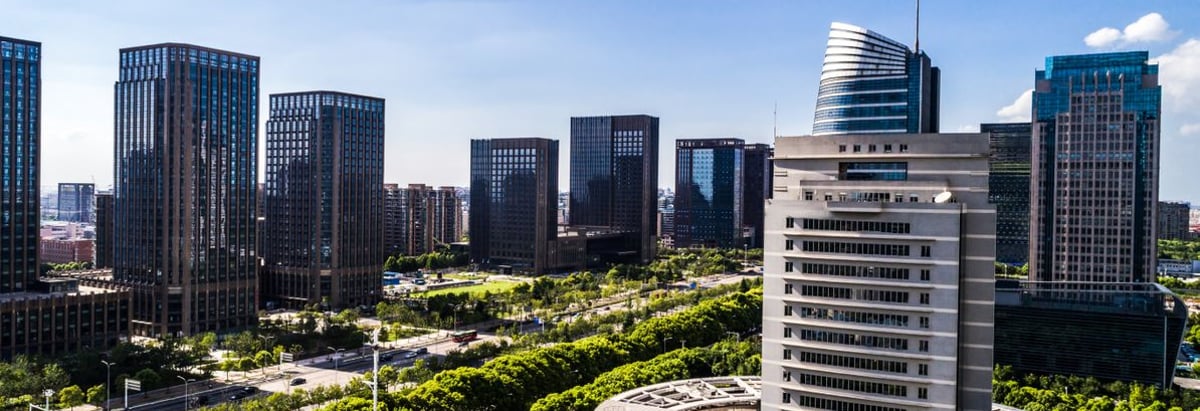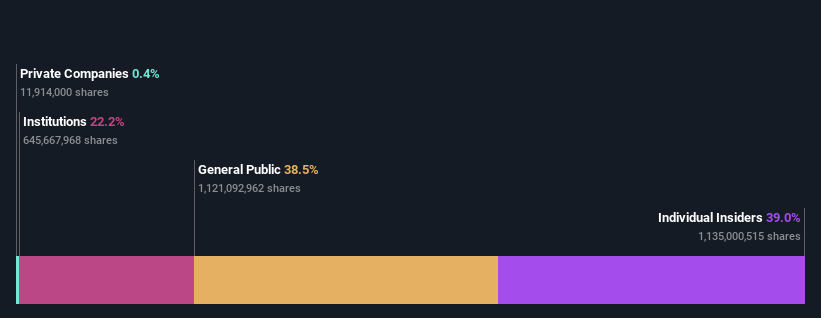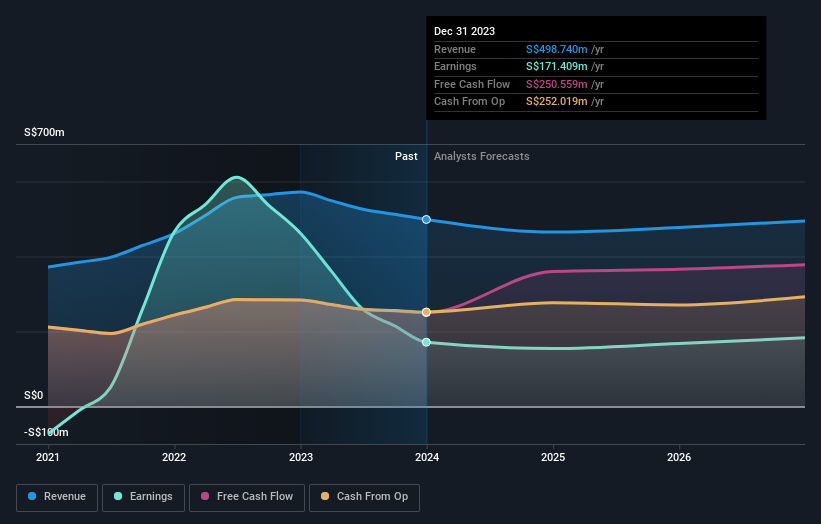The recent pullback must have dismayed Suntec Real Estate Investment Trust (SGX:T82U) insiders who own 39% of the company

Key Insights
- Insiders appear to have a vested interest in Suntec Real Estate Investment Trust's growth, as seen by their sizeable ownership
- The top 6 shareholders own 52% of the company
- 22% of Suntec Real Estate Investment Trust is held by Institutions
If you want to know who really controls Suntec Real Estate Investment Trust (SGX:T82U), then you'll have to look at the makeup of its share registry. With 39% stake, individual insiders possess the maximum shares in the company. That is, the group stands to benefit the most if the stock rises (or lose the most if there is a downturn).
As a result, insiders as a group endured the highest losses after market cap fell by S$146m.
Let's delve deeper into each type of owner of Suntec Real Estate Investment Trust, beginning with the chart below.
View our latest analysis for Suntec Real Estate Investment Trust

What Does The Institutional Ownership Tell Us About Suntec Real Estate Investment Trust?
Institutional investors commonly compare their own returns to the returns of a commonly followed index. So they generally do consider buying larger companies that are included in the relevant benchmark index.
Suntec Real Estate Investment Trust already has institutions on the share registry. Indeed, they own a respectable stake in the company. This implies the analysts working for those institutions have looked at the stock and they like it. But just like anyone else, they could be wrong. It is not uncommon to see a big share price drop if two large institutional investors try to sell out of a stock at the same time. So it is worth checking the past earnings trajectory of Suntec Real Estate Investment Trust, (below). Of course, keep in mind that there are other factors to consider, too.

Suntec Real Estate Investment Trust is not owned by hedge funds. The company's largest shareholder is Yigang Tang, with ownership of 15%. For context, the second largest shareholder holds about 10% of the shares outstanding, followed by an ownership of 9.0% by the third-largest shareholder.
We did some more digging and found that 6 of the top shareholders account for roughly 52% of the register, implying that along with larger shareholders, there are a few smaller shareholders, thereby balancing out each others interests somewhat.
Researching institutional ownership is a good way to gauge and filter a stock's expected performance. The same can be achieved by studying analyst sentiments. There are a reasonable number of analysts covering the stock, so it might be useful to find out their aggregate view on the future.
Insider Ownership Of Suntec Real Estate Investment Trust
The definition of an insider can differ slightly between different countries, but members of the board of directors always count. Management ultimately answers to the board. However, it is not uncommon for managers to be executive board members, especially if they are a founder or the CEO.
I generally consider insider ownership to be a good thing. However, on some occasions it makes it more difficult for other shareholders to hold the board accountable for decisions.
It seems insiders own a significant proportion of Suntec Real Estate Investment Trust. It has a market capitalization of just S$3.1b, and insiders have S$1.2b worth of shares in their own names. That's quite significant. Most would say this shows a good degree of alignment with shareholders, especially in a company of this size. You can click here to see if those insiders have been buying or selling.
General Public Ownership
The general public-- including retail investors -- own 38% stake in the company, and hence can't easily be ignored. This size of ownership, while considerable, may not be enough to change company policy if the decision is not in sync with other large shareholders.
Next Steps:
I find it very interesting to look at who exactly owns a company. But to truly gain insight, we need to consider other information, too. Case in point: We've spotted 4 warning signs for Suntec Real Estate Investment Trust you should be aware of, and 1 of them is potentially serious.
Ultimately the future is most important. You can access this free report on analyst forecasts for the company.
NB: Figures in this article are calculated using data from the last twelve months, which refer to the 12-month period ending on the last date of the month the financial statement is dated. This may not be consistent with full year annual report figures.
New: Manage All Your Stock Portfolios in One Place
We've created the ultimate portfolio companion for stock investors, and it's free.
• Connect an unlimited number of Portfolios and see your total in one currency
• Be alerted to new Warning Signs or Risks via email or mobile
• Track the Fair Value of your stocks
Have feedback on this article? Concerned about the content? Get in touch with us directly. Alternatively, email editorial-team (at) simplywallst.com.
This article by Simply Wall St is general in nature. We provide commentary based on historical data and analyst forecasts only using an unbiased methodology and our articles are not intended to be financial advice. It does not constitute a recommendation to buy or sell any stock, and does not take account of your objectives, or your financial situation. We aim to bring you long-term focused analysis driven by fundamental data. Note that our analysis may not factor in the latest price-sensitive company announcements or qualitative material. Simply Wall St has no position in any stocks mentioned.
About SGX:T82U
Suntec Real Estate Investment Trust
Listed on 9 December 2004, Suntec REIT holds properties in Suntec City, Singapore’s largest integrated commercial development (including one of Singapore’s largest shopping mall), a 66.3% interest in Suntec Singapore Convention & Exhibition Centre, a one-third interest in One Raffles Quay and a one-third interest in Marina Bay Financial Centre Towers 1 and 2 and the Marina Bay Link Mall.
Second-rate dividend payer low.
Similar Companies
Market Insights
Community Narratives




